How Marvel used “Black Panther” to forge a connection with audiences worldwide and made over $1.25 billion.
Of course, the movie was always going to be successful. After all, it’s about a Marvel superhero, the 18th installment in a cinematic universe that spans a decade, ever since Marvel kicked off its successful franchise with 2008’s “Iron Man”. Marvel has found the winning formula – a mix of action, humor and “comic-bookiness” that doesn’t take itself too seriously- that sees even its most obscure properties turned into brands worth hundreds of millions of dollars. 2014’s “Guardians of the Galaxy” is the greatest example of this. So “Black Panther” was already destined for success. But by channeling the experience of the diaspora, the film gained a foothold in the consciousness of black audiences worldwide. Yes, yes, I know. Technically, Coogler is a director, and he probably had very little to do with the actual marketing strategies for “Black Panther”. After all, Marvel is a well-oiled machine, as is their parent company Disney, and they have entire teams dedicated to nothing but sitting in boardrooms, brainstorming about marketing and promotions. But Coogler still gets credit, because he had the vision and the directing chops to make a movie that would connect with its audience in a profound way, inspiring them to fill theater seats in droves…. over and over and over again. I saw the film twice, and I personally know people that saw it three times (looking at you, mom and dad). Celebrities, activists, schools and churches rented out entire theaters to make sure that their communities were able to be a part of this epic moment in cinematic history. It may be safe to say at this point that “Black Panther” is the new flagship character of the Marvel cinematic franchise, taking over the no. 1 spot once inhabited by Robert Downey, Jr. and the “Iron Man” suit of Tony Stark. RDJ has remained in this position for the last ten years, uncontested and unchallenged. But Chadwick Boseman in his role of “Black Panther” now has the crown both figuratively and literally (his character T’Challa, the titular hero, is the king of the fictional African country Wakanda). So how did they do it? How did a movie about a relatively unknown superhero become one of the most culturally significant cinematic moments of all time? It’s simple. Marvel knows how to get out of its own way. By giving Ryan Coogler creative license and freedom of artistic expression, the movie was given as much room as it needed to grow to the absolute pinnacle of its success. Marvel basically signed its own billion dollar checks. Being that the movie was about an African nation and its citizens throughout the world, it only made sense for the suits in the boardroom to let this story be told by someone who would have a personal stake in the story.
The film trekked through unfamiliar terrain, a technologically-advanced country in Africa that was miles ahead of the rest of the world in their highly industrialized nation. When exploring surreal and fantastic concepts, it’s easy to lose sight, lose focus and lose your audience. And so Coogler grounded the film by giving it ties to his own personal story, and his hometown of Oakland, California. By tying “Black Panther” to his own personal story, Coogler gave the film the chance to achieve amazing feats (and even inspired Disney to invest $1 million in Oakland STEM programs). The film delved into African culture, and immersed itself in the richness of the continent. As Marvel gave extraordinary freedoms to the film’s director, the stars of the movie also operated with unusual autonomy. We don’t know if the cast was encouraged to talk about black representation in film and what this movie means to millions of black children worldwide, to see someone that looks like them in strong, dignified roles; but they certainly were not discouraged from speaking on these topics. As they crisscrossed the world on a media tour before the movie’s premier, “Black Panther” stars Chadwick Boseman, Michael B. Jordan, Lupita Nyong’o, Danai Gurira, Daniel Kaluuya and others publicly embraced the idea that this film was rooted in real-life issues. They freely gave their views regarding the condition of black people across the diaspora. At this point, the movie became a part of the movement, and it birthed an unofficial grassroots marketing campaign that was geared towards one singular goal: To make “Black Panther” successful. The movie was a symbol of the culture, and the director and the stars of the movie were able to establish a psychological connection to black audiences across the world, who saw themselves represented through a manifestation of art that had never happened on this level before. They made history (creating the movie) and then they made history (the movie’s financial success). The conversation that surrounded the film was fantastic and inspirational; and it made Black Panther one of the highest-grossing movies ever made. So what is the lesson here? I’m a huge advocate of invention – but not when it comes to the wheel. The wheel has been here for a long time, and it has come a long way from where it started. We rely on wheels everyday in some facet of our lives, whether it’s the wheels on our cars, the wheels on a plane, bicycles, skates, luggage bags, large tables and so much more. We rely on wheels – because they work. There’s no need to reinvent it. So invention is good, except for when you’re trying to reinvent something that already exists. This is how I feel about marketing. You don’t have to reinvent it. Most of us don’t realize it, but we see marketing concepts every single day; and if we just pay attention, we can examine and study successful marketing strategies. One of the most lucrative marketing strategies is the use of psychology. We see it all the time. We just don’t think about it. But we are constantly pulled in by ads that rely on cultural and emotional “hooks”. Large parts of advertising even rely on specific color codes, and the use of certain words to trigger an emotional reaction. “Black Panther” did this successfully by relying on the desire for dignified black representation in film. Once the movie was proven to adequately present this concept, the people took it from there. Even though the movie is set in a fictional country, the concepts were real enough that the audience could connect to them easily. This is a great example of the importance of connecting to your audience. If you’re still reading this blog, maybe it’s because you have a product that you want to market in order to make money. Perhaps you want to achieve a goal, or even be elected into a position. If you’re a business owner, your merchandise is the product. If you’re a public figure, you are the product. But either way, your goal is to try to find a way to connect your product to the audience that you are trying to reach. You must appeal to your audience. In order to be successful, the connection has to be strong. It has to be an emotional tie that most of the people in your audience share that will mentally anchor them to your product. Companies spend millions of advertising dollars every day to trigger an emotional response from consumers, hoping to influence our shopping habits and convince us to purchase their products. There are many ways to achieve these goals, but here are 5 common strategies that are used in successful marketing campaigns: 1. Use an idea that will appeal to the emotions of your audience. Connect yourself to the consumer. Recognize that they don’t want to hear a technical breakdown of the services or products that you offer. Instead, form a rapport by telling your audience how your product or service will improve their lives. Make everything about them. Create common ground so that the audience will feel comfortable. Use memories or other shared experiences that have impacted the lives of your audience. 2. Acknowledge your flaws. t’s not a bad thing to publicly admit when you are wrong. In fact, it’s just the opposite. If consumers can see that you’re honest about your own shortcomings, then that shows them that you are credible enough to be trusted when you tell them why they should spend their money with you. 3. Reposition the competition. Never insult the competition. Instead, simply take them out of the equation by honing in on what your audience needs, and then position yourself as the only business or company that can adequately handle those needs. 4. People like exclusivity. Everyone likes to feel as though they are a part of an exclusive club. One company that does this well is Apple. Steve Jobs masterfully created a subculture centered around Apple, that highlights its audience as “special” and “more advanced” than everyone else. 5. Use trigger words. Studies have shown that there are certain words that work consistently in marketing and sales. Think about it: How many of these words do you see every day? “Act now”, “discover”, “free”, “save”, “instant”, “premium”, “last chance”, “buy one, get one”, “proven”, “guaranteed”, “secret/exclusive”. Do you see these words a lot? Well remember what I said earlier. If the wheel is working perfectly, then why are you trying to reinvent it? So can psychology really improve your marketing skills? Yes. There are many ways to use psychology in your marketing materials. “Black Panther” was successful because of cultural marketing. For you, it may be something else. But whatever it is, you need to find it and you need to find it quick. A great marketing strategy is the only thing that stands between a booming and successful business, and a mom-and-pop shop that is desperately trying to keep from going under.
Author bio:
Jamar Muhammad is a media specialist at Theatrical Harmony Media. He helps companies, entrepreneurs, brand owners and public figures create the perfect image for attracting customers and clientele by providing Public Relations, Branding & Marketing, Storytelling and Digital Marketing services. You can reach him at www.theatricalharmonymedia.com or on Facebook at www.facebook.com/theatricalharmonymedia. |
Categories
All
Archives
November 2023
|
|
Locations:
New Orleans, LA Nashville, TN |
|
Digital Media Ghost @2020
|
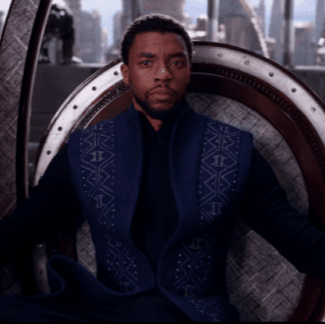
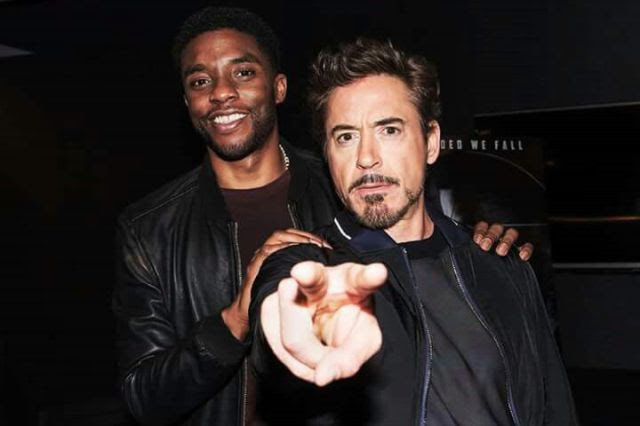

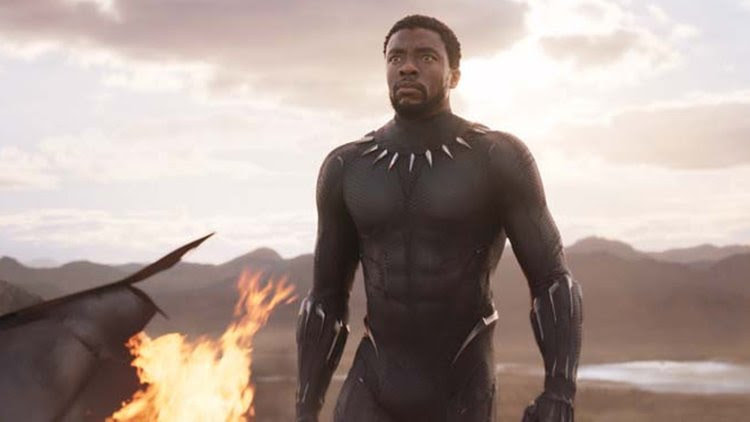
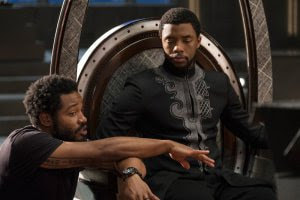

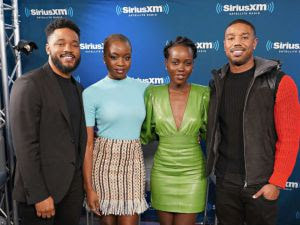
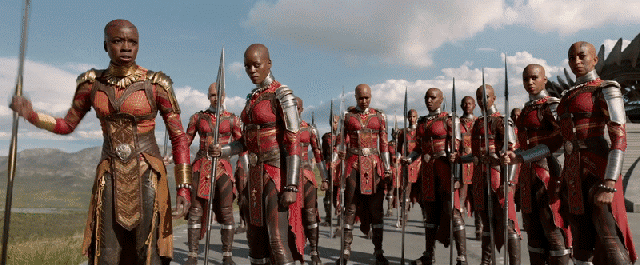
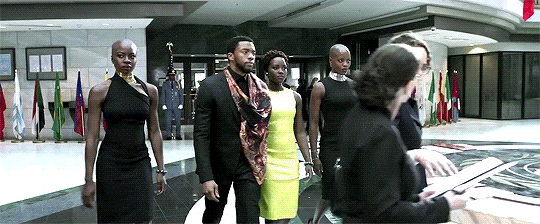


 RSS Feed
RSS Feed
